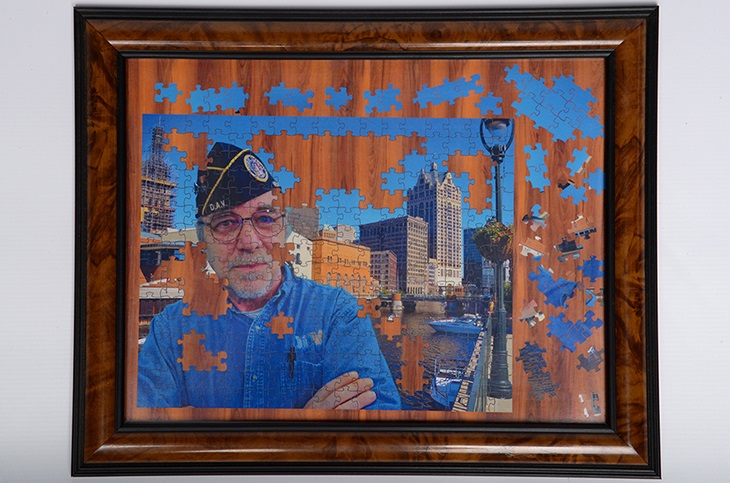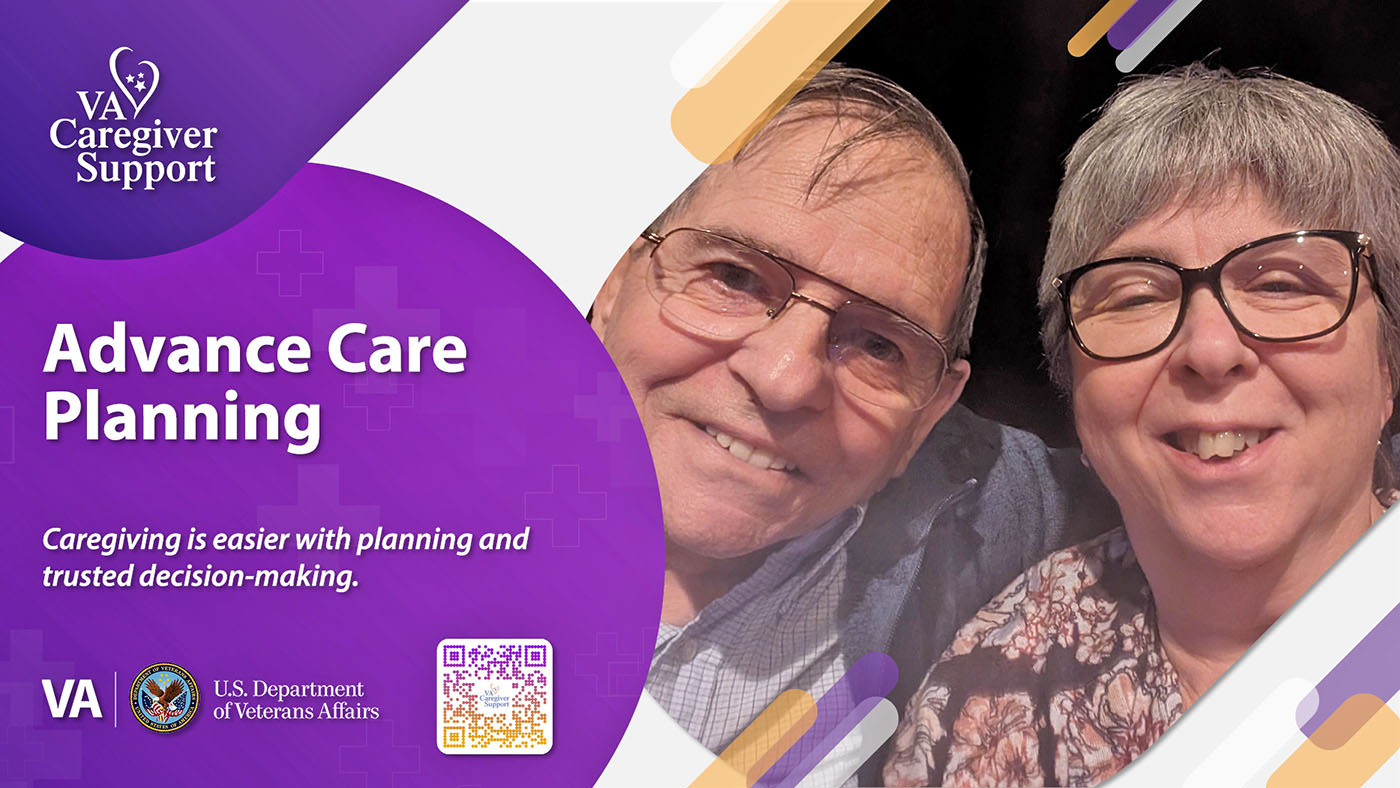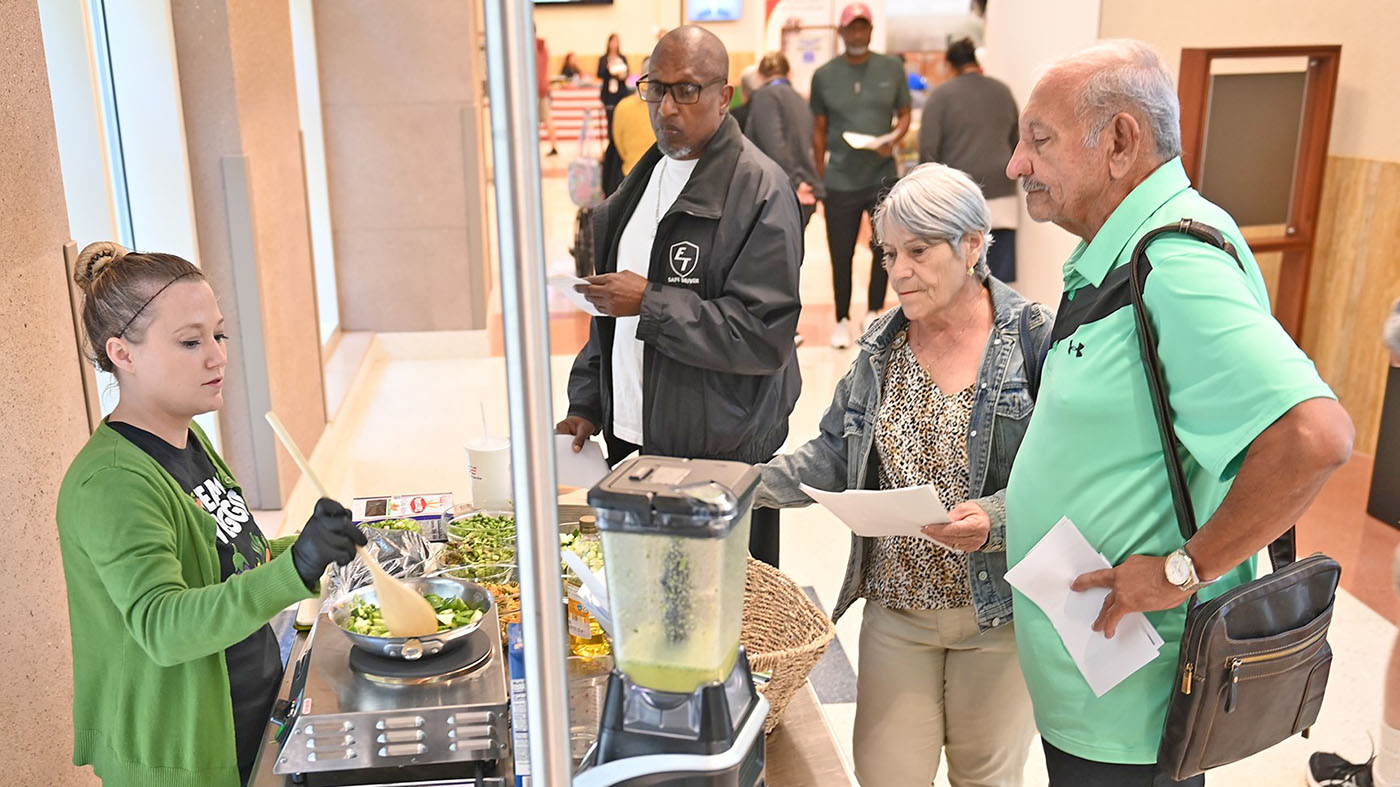David Ryba ran away to the Army in 1968 for a new start. But a traumatic event in the service kept him running away even after he got home.
He couldn’t hold a job. Couldn’t contain explosive mood swings, or keep friends. Didn’t like other people and didn’t want to socialize. He was an incomplete jigsaw puzzle, a self portrait as story of his life.
The jigsaw puzzle was one of three photos Ryba submitted in the local creative arts festival at the Milwaukee Veterans Affairs Medical Center, his first year in the competition. It won first prize, and will be on display at this year’s National Veterans Creative Arts Festival, Oct. 28 to Nov. 3, in Kalamazoo, Michigan.
The jigsaw puzzle is a series of three separate photos and special effects he layered atop the self-portrait taken against a background of the Milwaukee river walk. The final touch was to use special effects to make it look like a jigsaw puzzle with scattered pieces around the table. Though the puzzle photo is mostly complete, the missing pieces are from the photo of himself.
“I absolutely thank God for the Milwaukee VA and the recreation therapy,” he said. “It absolutely saved me. I guess, first and foremost, I found people in VA who were talented and we had something in common. I found people I could share my story with in group therapy, and that’s all helped me.”
It was a long time before Ryba even come to VA for help.
He went into the Army at 17 in 1968.
“I dropped out of high school, and guess I ran away to the Army to get away from things here and get a new start,” he said.
For the next two years, he served in the infantry in Germany, ensuring the Soviets wouldn’t invade. But a “very private and traumatic event” marred his Army stint.
“I don’t like talking about it and still don’t. It’s a very private matter. But most people associate PTSD with combat, and mine wasn’t combat. I spent a lot of years thinking it only happened to me, and I was all alone.”
Despite the trauma, he found an outlet in photography while overseas.
“There was a recreational facility over there, and they had a dark room. I told the guy who ran it, ‘I’d like to try that out.’
“He said, ‘I don’t know a thing about the photography, but there are chemicals, papers, cameras and books back there. You can read the books and figure it out yourself. I taught myself basic photography.”
But life after the Army was challenging.
“I was going to pieces. Things weren’t fitting. Through the 80s, I mostly lived at home, and would have four or five jobs a year.”
He came to VA for the first time in 2005.
“It was a combination of things in the beginning, but when I was at my worst, group therapy was great. I could sit in a group and learn there were other people experiencing the same stuff I experienced. I thought it was isolated and there was a lot of embarrassment. It is easier to talk to people in a group. All of a sudden, I’m looking around and going, ‘Whew! I’m not the only one!’”
Recreation therapy also gave Ryba social skills and helped him get out of his shell.
“I think David had developed these interests in his youth, so it’s great to see him continuing to pursue the arts as a way to help him cope with the everyday stressors of life,” said Courtney Zeller, a Milwaukee VA recreation therapist who started the photo group.
“He’s very social,” Zeller said. “It’s helped him come out of his shell in the photography group, and now he has come to me with some ideas, different ways to help with Veterans, learning about the camera.”
Ryba said he’s grateful Zeller helped him rediscover his passion.
“I love the photo classes the most because it is something I’ve loved to do for 50 years,” he said.
His photography work inspired him to pick up a guitar again, something he hadn’t touched in decades. After 10 classes with Guitars 4 Vets, he’s able to strum and even play music from The Eagles.
“It’s pretty cool to see him actually playing music at the end of his lessons. He’s really good,” Zeller said. “The value with all these programs is it helps Veterans build their self-esteem and confidence. They have value and want to share it with others and it provides that ripple effect.”
Ryba smiles when he thinks about how far he’s come.
“I wouldn’t have been able to do any of that without getting help, and the recreation therapy programs.”
His award-winning photo is a jigsaw puzzle self-portrait with too many missing pieces. But for Ryba, that’s only a statement about his past.
“Now,” he said, “all the pieces are coming together.”
Topics in this story
More Stories
In this week's #LiveWholeHealth video, learn how to incorporate mindful movement into your day with yoga and stretching to improve posture, reduce stress and boost mood.
VA’s Caregiver Support Program provides Veterans’ caregivers, especially first-timers, guidance and resources.
Healthy Teaching Kitchen offers Veteran patients nutrition knowledge and the guidance and skills to learn how to cook.






